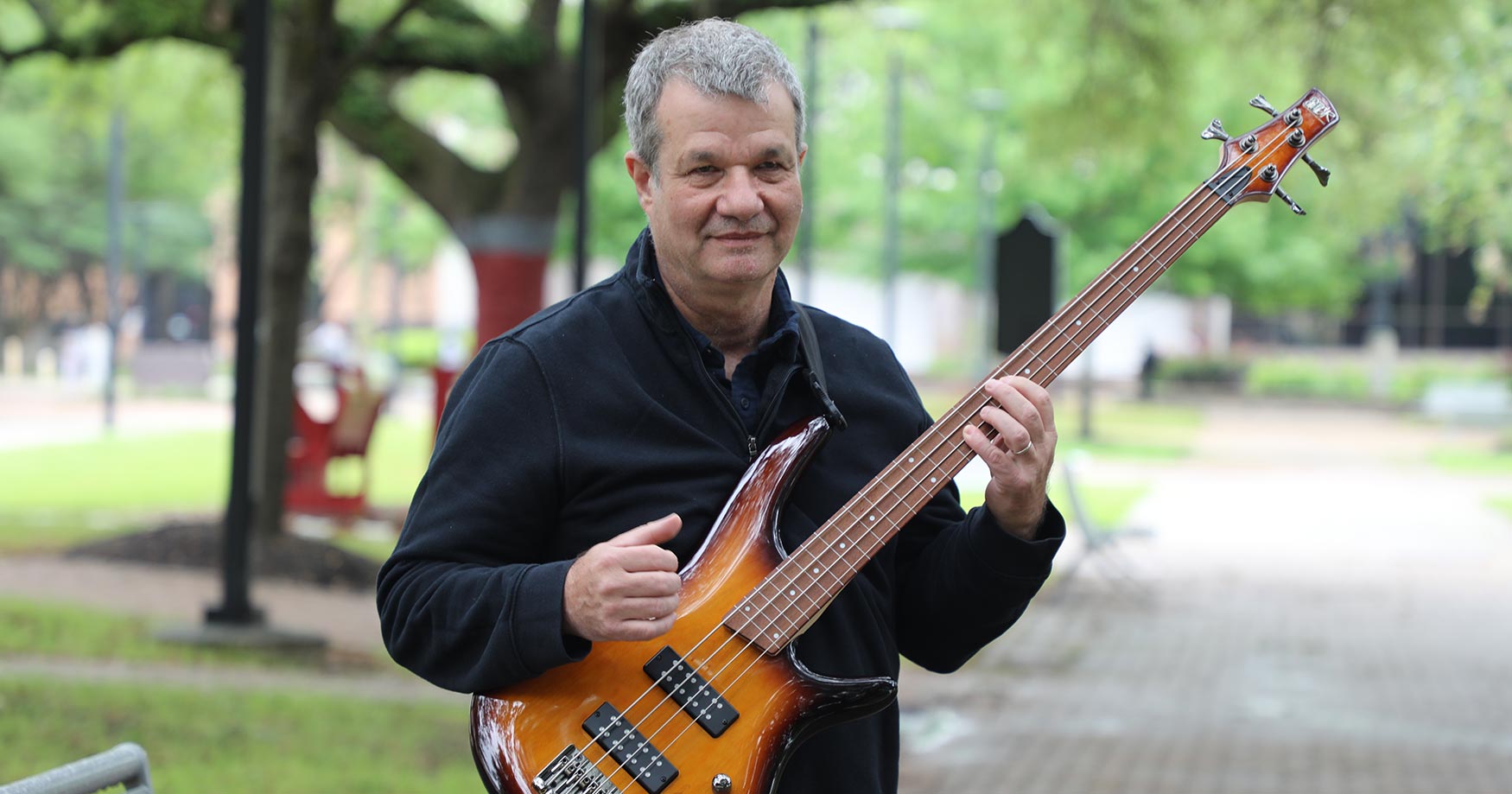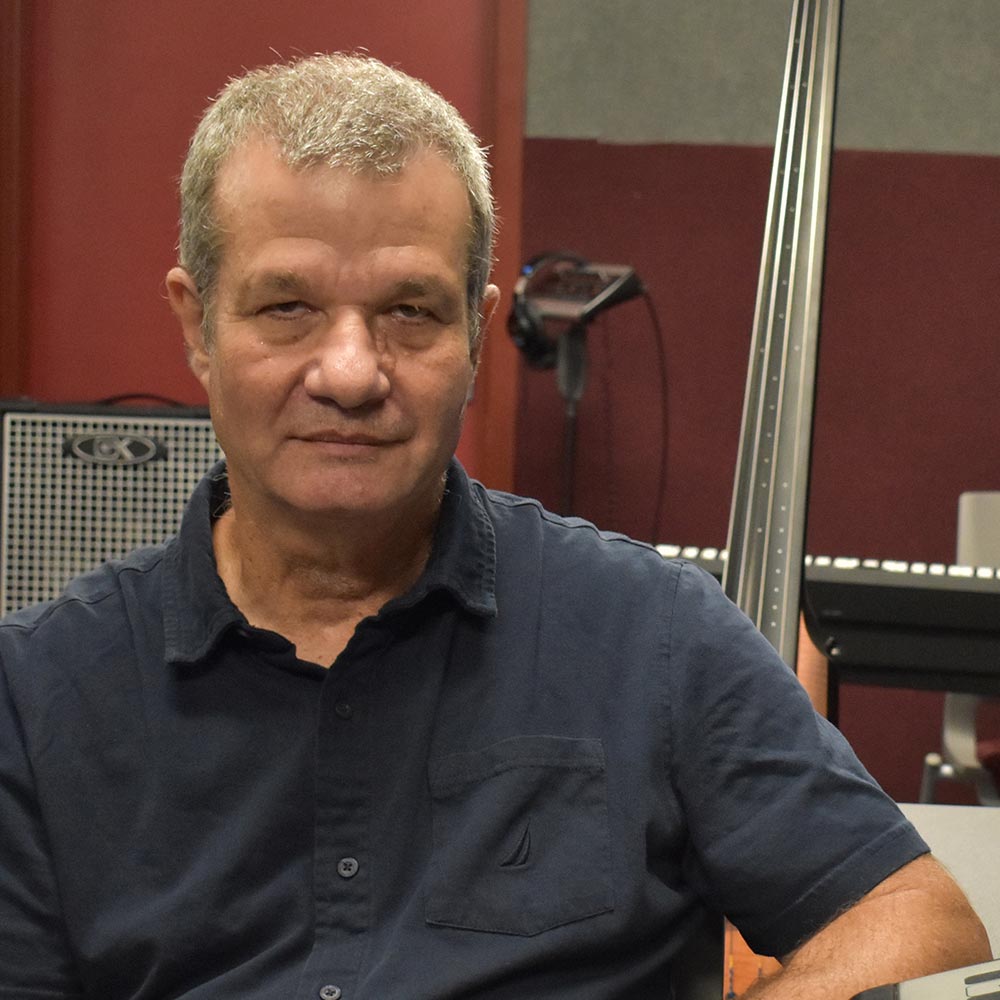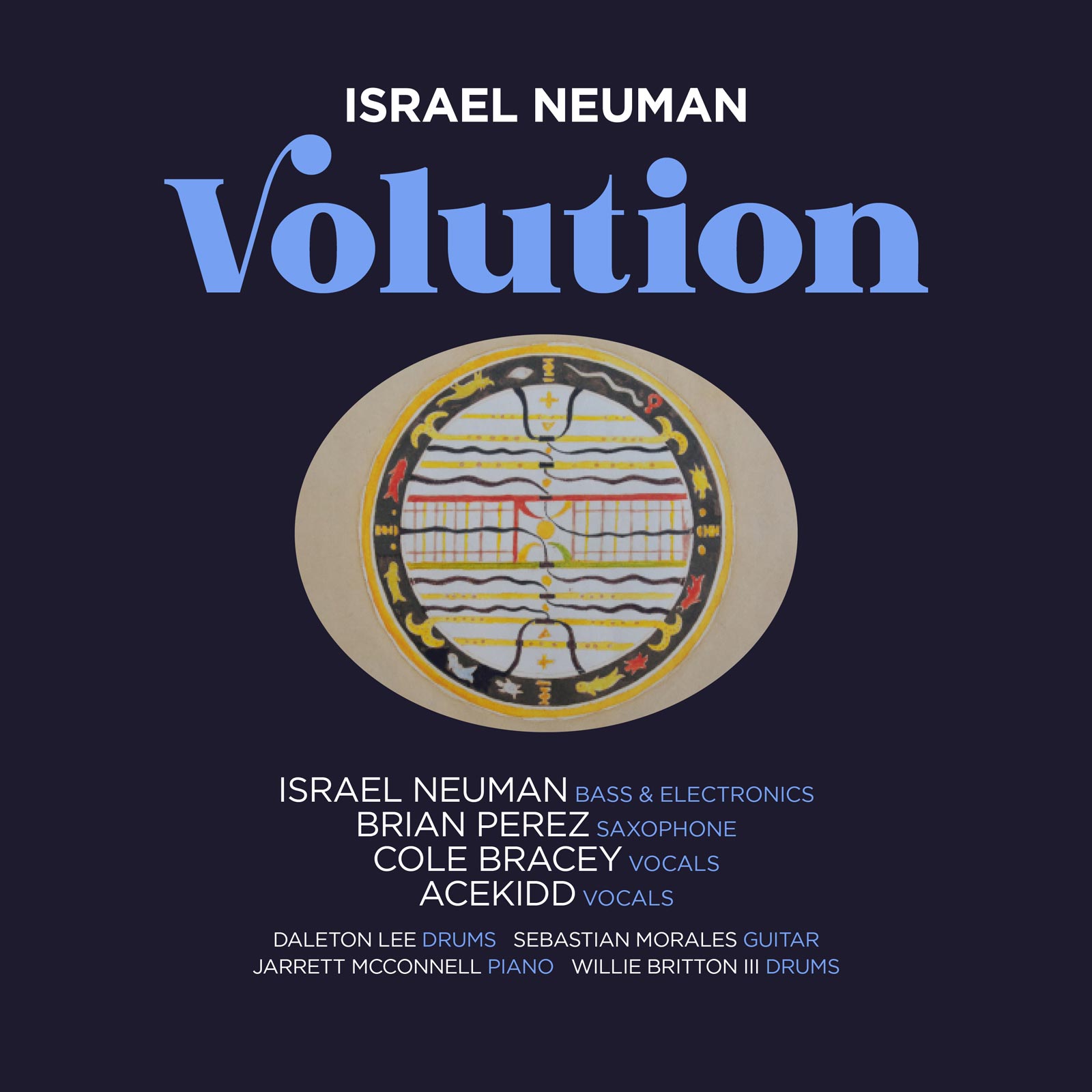
Israel Neuman’s VOLUTION fuses the power of hip hop with the versatility of jazz to form a uniquely forceful expression. The music heard on the album hints at a number of other musical genres as well, including rhythm and blues and middle-eastern folk music, to name a few. With evocative lyrics, masterful modulations, and a smooth blend of celebrated musical styles, VOLUTION invites a wide audience of music lovers to the table.
Today, Israel is our featured artist in “The Inside Story,” a blog series exploring the inner workings and personalities of our composers and performers. Read on to learn how he met the great Dizzy Gillespie, and how transcribing bass solos strengthened his understanding of the harmonic relationships in jazz…
If you could collaborate with anyone, who would it be?
In the past few years, I was involved in multidisciplinary projects such as my collaborations with filmmaker Dr. Tyrone Dixon, playwright Thomas Meloncon, and journalist Serbino Sandifer-Walker. I hope to continue these exciting collaborations while getting involved in new interdisciplinary projects. I also hope for the opportunity to revisit some of my earlier collaborations. I would love to work again with Arabic violinist Ihab Nimer, and guitarist/Oudist Amos Hoffman, as well as pianist/composer Doron Kima with whom I recorded some of my film music and other music in the early 2000s.
How have your influences changed as you grow as a musician?
When I started to play jazz bass, I listened a lot to piano trios. I always thought that the bass has a greater voice in a piano trio setting. My favorites were Paul Chamber with the Red Garland Trio, Scott LaFaro with Bill Evans and Charlie Haden’s duo albums (e.g. with Kenny Barron), and trio albums (e.g. with Paul Bley and Paul Motian). In retrospect, transcribing these basslines and solos gave me deep insight into the rhythmic-harmonic relationships of jazz.
When my focus shifted to serialism and electro-acoustic music my heroes became the two “Pierres,” Boulez and Schaeffer. The former developed the most lucid and yet most complex compositional systems. The latter offered the world the theory of sound objects, which is to this day the most significant theory of electronic music, and the subject of my own research.
I was always interested in non-western music, and in middle-eastern music in particular. The Turkish musician Omar Faruk Tekbilek is one of my favorites. Recently, I have been listening to the music of the Syrian-Greek composer Haig Yazdjian (e.g., the album Talar). Other more recent favorites include the pianist/producer Robert Glasper and the rapper/hip-hop artist KB (Kevin Elijah Burgess).
Where and when are you at your most creative?
I am a morning person, and the studio is my preferred workplace. I am most creative in the early morning in my home studio. Otherwise, I am very creative when collaborating with other musicians in the studio or on stage, however that rarely happens early in the morning.
What’s the greatest performance you’ve ever seen, and what made it special?
Sometime in the early 1990s (I believe it was 1991), Dizzy Gillespie and Paquito De Rivera came to Israel for a concert which was part of their joint tour in Europe. The concert was canceled for security reasons. However, an ad hoc unannounced performance was organized in one of Tel Aviv’s jazz clubs. At that time, I was a student in the Jerusalem Academy, and I was privileged to be in contact with David Fink, the bass player who played with Paquito De Rivera. I met Fink in some of his previous visits to Israel. On the day of this performance, I was in fact having a bass lesson with Fink. He invited me to join him at the backstage of this club, where I had the great honor of meeting Dizzy Gillespie. The lineup of this amazing performance also included trumpet player Claudio Roditi and saxophonist David Sanchez.
Who are your musical mentors?
I was very fortunate to have great mentors throughout the years and so I will try to mention most of them. My first bass teacher was Michael Klinghoffer, currently the president of the Jerusalem Music Academy. He introduced me to the great Gary Karr, with whom I studied at the University of Hartford. At the Hart School I also had the great honor study with jazz legend Jackie McLean and bassist Nat Reeves. At the University of Iowa, during my graduate studies, I studied composition with Lawrence Fritts, David Gompper and John Eaton. My most influential Iowa mentors were jazz composer/educator John Rapson, who passed away in 2021, and Dr. Alberto Segre, the chair of the computer science department at the University of Iowa.

Dr. Israel Neuman is a composer, producer, sound engineer, bass player, and educator. He teaches sound production at the Texas Southern University School of Communication. Neuman’s sound projects are diverse both in content as well as in their uses of technology. He recorded, mixed, and mastered for jazz artists such as John Rapson, Damani Phillip, Lewis Nash, Jim Buennig, and James Dreier. He collaborated as sound designer and composer with filmmakers Tyrone Dixon and Yuval Cohan as well as playwright Thomas Meloncon.

